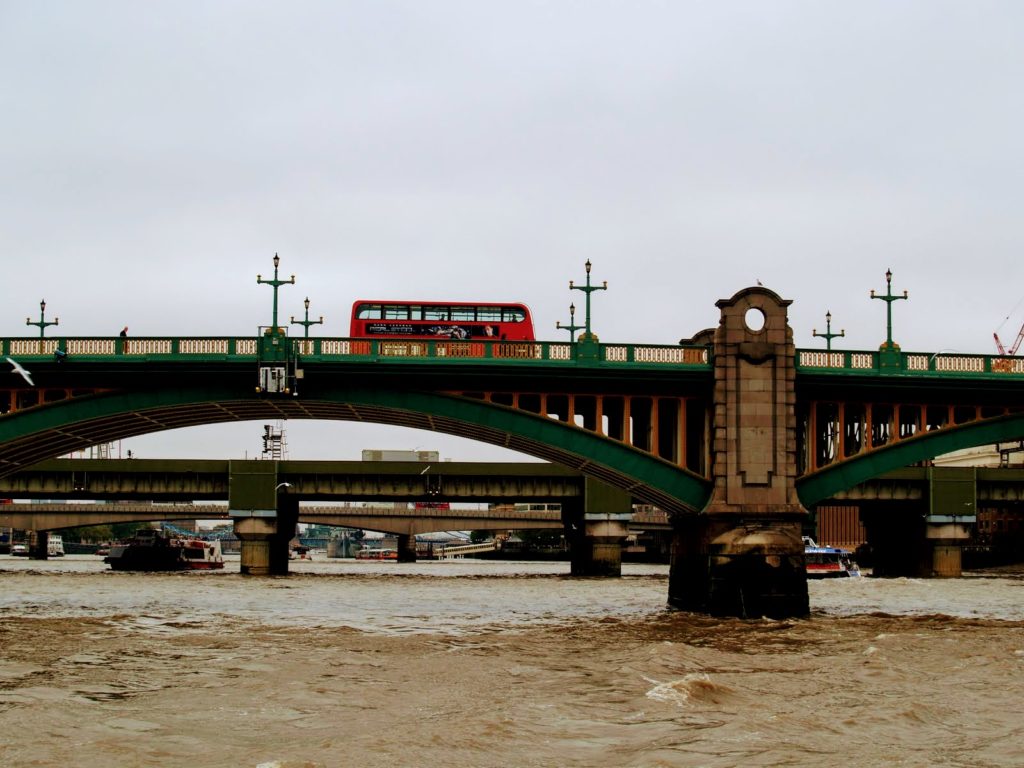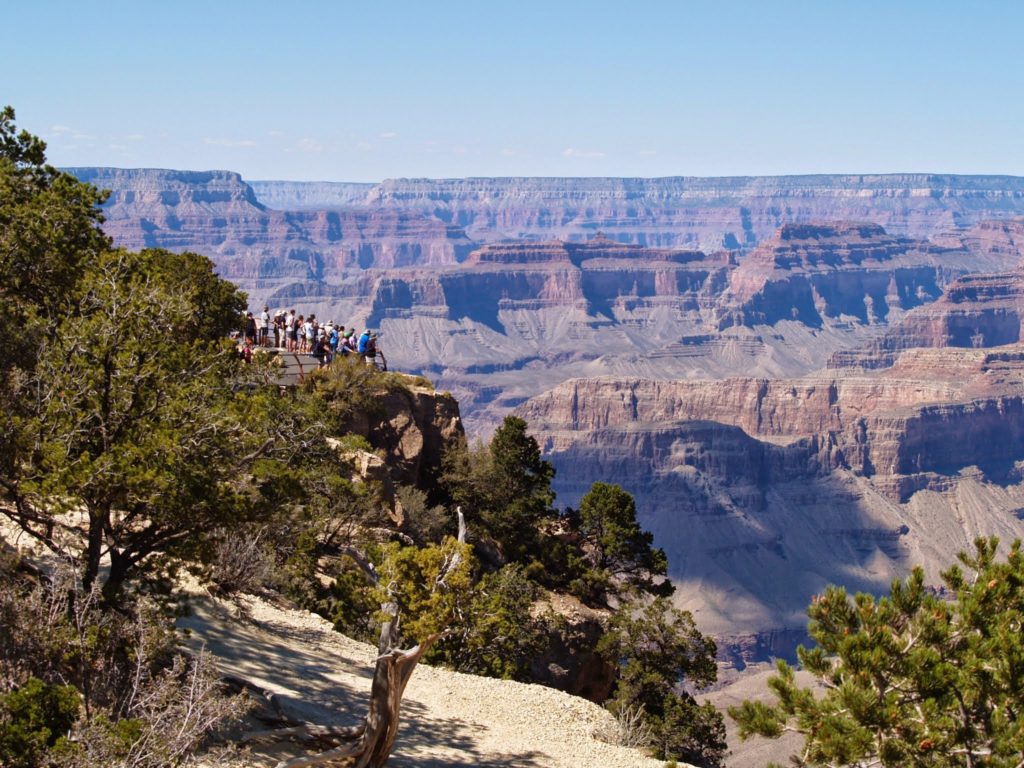Holiness
Isaiah 6: Holy, Holy, Holy is the God-of-the-Angel-Armies. His bright glory fills the whole earth.
Isaiah is already a prophet of God when he has his vision of the holiness of God. However, it’s that vision that fuels his ministry and transforms his relationship with God. He sees worship taking place in heaven, with heavenly beings shouting out the holiness of God. Everything’s impacted by that holiness: foundations trembling, billowing smoke…and a humbled prophet of God. So what does it mean for God to be “Holy, Holy, Holy”? While I think the triple statement of God’s being holy is intended to cause us to think of his holiness as being complete and not meant to give pastors the makings of three point sermons I do see three aspects of the holiness of God. First, his holiness is that of purity. God is untouched by sin and sin is absolutely foreign to his character. Second, his holiness is that of separateness. God isn’t humanity multiplied. There’s an “otherness” about him and while we’re created in his image, there is that about God which is forever beyond our understanding. Third, his holiness is that of transcendence. Even as the brightness of the sun both warms the earth, giving life, and at the same time is so powerful as to be frightening to us, so is God’s holiness both beautiful and at the same time awesome and untouchable by us. Had God not revealed his holiness to us we’d have zero chance of even dimly contemplating it. Isaiah doesn’t write an essay about his thoughts on God’s holiness. Rather, he has a God-given vision of it, and once he has that vision he’s never the same.
Take Away: A God who is holy, holy, holy should be worshiped and feared.
Tag: Holiness
Devotional on Isaiah
Moment of truth
Isaiah 6: Every word I’ve ever spoken is tainted…words that corrupt and desecrate.
Isaiah’s first reaction to seeing the holiness of God isn’t reverence or ecstasy. Rather, it’s horror. In view of a holy God he realizes his own lack of holiness. When compared to his fellow citizens, Isaiah’s a good man, even a righteous man. However, when he finds himself in the presence of God he sees himself as he really is, and that vision brings him to his knees. Isaiah’s words are deeply personal and my reaction to this passage, if it’s honest, starts with me and not with what I perceive to be failure in others. Jesus touches on this in the Sermon on the Mount when he says, “Be perfect as your Father in heaven is perfect.” Also, I note that Isaiah doesn’t announce that he’s now going to commence a self-improvement campaign. Instead, it’s honest recognition of his sinful ways and deep sadness as he realizes just how broken his life is. Isaiah, in just a few words, says it all: “I’m doomed because everything about me, even my words, is unclean and unholy. Now that I’ve seen God I realize the depth of my lostness. In myself I see no hope whatsoever.” The hope of Isaiah isn’t found within himself. He knows it, and the Lord knows it.
Take Away: It’s only as we’re honest with ourselves and with the Lord that the Lord can begin transforming our lives.
Devotional on Isaiah
God’s response to my need
Isaiah 6: Gone your guilt, your sins wiped out.
Isaiah’s vision of God’s holiness breaks his heart. In light of that vision any claims to righteousness are blown away. His brokenness brings him to the place of honest confession which is just what the Lord’s waiting for. Immediately, the Lord takes action to cleanse him of his sin. Since this is a vision, there’s a lot of symbolism here. We have an altar of sacrifice with fire, which speaks to us of surrender and purification. There’s Isaiah’s direct reference to his “unclean lips” which refer to, not just a tendency to say the wrong thing, but his whole life, which he sees as speaking in ways that reflect a deep level of spiritual need. The thrilling thing is how the Lord responds to Isaiah’s cry of repentance. A heavenly being touches his lips with the burning coal from the altar declaring the wonderful truth that his sin is “wiped out” and his guilt is gone. Listen, I don’t have to pull some surprising insight out of this passage. In fact, it’s surprising enough just as it is. When I realize the purity of God and see my own deep failure…when I confess it, throwing myself on the mercy God…when I do that, I place myself in the only place where the Lord can help me. I can’t forgive my own sin and I can’t purify my own life, but when I “repent and turn” he immediately does for me what I can never do for myself. There’s no better word from the Lord than “gone your guilt, your sins wiped out.”
Take Away: As I confess my need the Lord does for me what I can never do for myself.
Devotional on Isaiah
Cleansed and called and sent
Isaiah 6: Whom shall I send? Who will go for us?
Isaiah’s vision of God brings him face to face with God’s holiness and his own uncleanness. However, his cry for mercy is heard, and through the symbolism of fire from the altar, we see true cleansing for this man of God. Now here’s his commission. Immediately, I’m reminded of the need for “sent people” in the Kingdom of God. The need is great, and, as Jesus said, “The workers are few.” The Lord wants to touch every life on the planet in wonderful ways, but workers must be willing to go and work in the harvest. Also, we see that just any worker won’t do. The call comes after the cleansing, or, maybe as a part of it. A cleansed heart seeks only that which pleases the master while the carnal heart is divided between what self wants and what God wants. A soldier who filters every order he or she receives, deciding whether or not he or she really wants to obey isn’t going to be very effective in the heat of the battle. The call of God to go is for those who’ve died out to self and been purified by the work of the Lord. Finally, there must be absolute willingness on the part of the one called. The Lord doesn’t force Isaiah out into the difficult ministry to which he’s to give his life. Isaiah’s free will isn’t compromised. The call goes out for workers and Isaiah willingly steps forward with, “I’ll go. Send me!” Workers in God’s Kingdom are servants of the Lord, but we aren’t in bondage. We serve gladly and willingly.
Take Away: Workers in God’s Kingdom are servants of the Lord, but we aren’t in bondage.
Devotional on Isaiah
Sanctification
Isaiah 29: These children will honor me by living holy lives.
They’re such failures at being a people of God! Nothing works for them. Their worship is skin-deep, their vision of God is lost to spiritual blindness, and their relationship with their Creator is upside down and wrong side out! The Lord, through Isaiah, has no compliments for them. However, the Lord does have words of hope. It will take some doing but God’s going to make them into a holy people. He’s going to have people who worship in holiness, who reverence him as the holy God of Israel. Getting there is going to cost them everything. They’ll lose the land God gave them and, frankly, many in this generation will lose their lives. Out of the destruction, God will begin remaking them into a people worthy of his Name. Today, God’s still in the business of creating holy people. The process is, in some ways, the same. He brings us to the place where we give up everything, dying out to self. Once all else is gone he fills us with himself. This sanctification process is often painful for us as we struggle with the Lord over ownership of our lives. When we do surrender to him, though, the result is holiness; God honoring, wonderfully satisfied lives.
Take Away: The Lord is still in the business of creating holy people.
Devotional on Isaiah
Wouldn’t take nothing for my journey now
Isaiah 35: There will be a highway called the Holy Road.
God is a holy God and his purpose for us is that we be a holy people. Isaiah looks to such a day, a day when the people of God will reflect God in their lives. Of course, that reflection is incomplete. Even as the bright moon reflects the sun, but not the entirety of the sun, so do God’s people reflect the holiness of God. Isaiah promises a day and a people who’ll walk the Holy Road and in that journey will “be becoming” the people God intends them to be. To walk that road is, at the same time, a journey and a destination. That is, the journey is what the Lord calls us to. To him, “arriving” is not nearly as important as “journeying.” With that in mind we respond to his call on our lives, the call to holiness, and thus get on the Holy Road. Starting is not the same thing as finishing, but without the start and without the steadfastness of the journey there’s no hope of arrival. Holiness people are people committed to that journey, not people who have finished it.
Take Away: We are a people on a journey, not people who have reached a destination.
Devotional on Isaiah
Hope of restoration
Isaiah 57: I live in the high and holy places, but also with the low-spirited, the spirit crushed.
God is the Almighty and I’d better never forget it. His ways are higher than mine and he’s right at home in Eternity. This awesome God is a demanding God. He calls me to live in fellowship with himself and his standard for me is nothing short of holiness. If I rebel it’s not his purpose that is broken, but me. However, this God is not untouched by that brokenness. He not only sits on his throne way up in Heaven, but he also inhabits the world he created. When my sins have divorced me from the Lord and I begin to realize the awfulness of those sins I find that he’s been there, reaching out to me all the time. The same God, this high and towering Being, cares for me even in my ruined state. He longs to transform my “spirit-crushed” life into something wonderful and new. His language to me is filled with powerful and welcome words: healing, leading, comforting. As I reach up from the bottom, I realize that God has been there all the time, reaching down from the top.
Take Away: God is the God of Second Chances.
Devotional on Ezekiel
The mark of God’s people
Ezekiel 8: Don’t lay a hand on anyone with the mark.
In one of his visions Ezekiel finds himself back in Jerusalem. The Lord takes him on a tour of the Temple, giving him a spiritual view of what’s actually going on there. The sin is outrageous and disgusting. Anyone who loves the Lord and worships him would be broken hearted to see their precious Temple desecrated in this way. Then, Ezekiel sees a man on a mission. He’s to walk the streets of Jerusalem, putting a mark on the foreheads of those who are distressed at the sin of their nation. All others will be wiped out. I find it interesting that in Revelation we find the “mark of the beast.” In that case, it’s those who refuse the mark who are saved. Here in Ezekiel, we see the reverse. It is those with the mark who are spared from the judgment that comes. Comparing the two “marks” ought to cause some who subscribe to a “Left Behind” brand theology to pause and consider! I think of the mark of Ezekiel as the “mark of caring.” You see, God cares about people and righteousness and holiness. He’s always on the lookout for people who’ll join him in that concern. If that fellow with the writing kit passed by my life today I wonder if I would receive that mark.
Take Away: The sin of our society should break our hearts.
Devotional on Ezekiel

The cry of God’s people
Ezekiel 11: I’ll give you a new heart. I’ll put a new spirit in you.
Judah’s problem isn’t poor leadership or powerful enemies. They aren’t ignorant of God’s desires for them and they aren’t the unwitting victims of circumstance. They are where they are because they’ve rebelled against God. Through their history, time and time again, they’ve followed a cycle of failure, judgment, repentance, and restoration — only to have it all start again. Now many of them have been exiled from the land God gave them. Back in Jerusalem sin reigns and soon the result of that sin will be the total destruction of their beloved city. The Lord says he’s going to break the cycle by changing their hearts. The result will be a people who love God and love his ways. Many Christians can identify with the cycle of failure we see when we journey with these ancient Israelites. We too have been trapped in a cycle of failure, judgment, repentance, and restoration. As we read the promise of a “new heart” our spirits respond with longing for that kind of relationship with God. These words stir us and challenge us to let God have his way in our lives even if that means we need a spiritual “heart transplant.” The result is a healthy spiritual life: “You’ll be my people! I’ll be your God!”
Take Away: Only the Lord can do what must be done in us and he’ll only do it as we allow him to and cooperate with him in that work.
Devotional on Ezekiel
God’s agenda isn’t a secret
Ezekiel 20: I, God, am in the business of making them holy.
Through Ezekiel, the Lord recounts the history of his dealings with the people of Israel. We’re reminded of the Exodus from Egypt and Moses going up on the mountain for an encounter with the Almighty. A result of that meeting is the Law. They now have Ten Commandments to live by and soon there’s an entire body of Law to go with them. In the passage before me today the Lord tells their descendants his purpose in all of that. He did it as a part of his project to make them holy. From the beginning and down through the centuries the Lord has continued to work to that end. As he speaks through Ezekiel we find that God’s purpose has not been watered down or diverted. In this passage, the Lord tells them that the whole “Sabbath day” approach was for this purpose, part of his grand plan. This message is addressed to another generation that insists on resisting the Lord and the result is his rejecting them, erasing many lines that have been drawn, and nearly erasing them from the face of the earth. What’s next? The answer is obvious: it’s God’s purpose. Their failure doesn’t change his purpose for them. In new ways and with a new generation the Lord will return to the “business of making them holy.” As he said to their ancestors, “Be holy because I am holy.” I’m reminded today of just how committed God is to this business of holiness. As one of his people, I want to cooperate with his purposes for me and for the entire human race.
Take Away: The Lord is in the business of making people holy.
Devotional on Ezekiel

Sacred Space
Ezekiel 43: Draw a picture…
As a casual reader, one of the bewildering portions of Ezekiel has been, to me, all the measuring that takes place in the final chapters of the book. In his vision Ezekiel crawls all over the Temple measuring every nook and cranny, carefully taking note of every inch. If I thought about it at all I thought maybe these were the plans for the promised rebuilding of the Temple. However, I don’t think that’s the actual intent. The Lord tells Ezekiel, “Draw a picture so they can see the design and meaning and live by its design and intent.” Concerning the Temple the prophet is told, “Everything around it becomes holy ground.” God had called the people of Israel to be his own, holy nation. All the laws, rituals, and even the construction of the Temple had the purpose of helping to bring that to pass. In this case Ezekiel is to rediscover the power of the architecture of that place of worship. Ezekiel’s vision of the Temple is to remind his people of how far they’ve fallen from the holiness to which they were called. It’s also intended to give them hope and call them back to God. Ezekiel’s going to go right on with his vision, talking about the rituals and the work of the priests and the feasts, all with that same intent. However, I’m still thinking about the purpose of sacred space. The Temple wasn’t just built to be a functional place of worship. It was to call people to holiness — a place set apart for the worship of a God set apart by a people set apart. The layout and the furnishings weren’t just for practical use. Just looking at the building was to create longing for holiness. I don’t know that I’m deep enough to fully grasp this, but I’m reminded today that as I read of Ezekiel with his tape measure that there’s more going on than just the drawing of blueprints.
Take Away: Thank the Lord for those gifted in the design of buildings set apart for the purpose of worship.
Devotional on Haggai

Sorting out a passage and finding at its core: grace
Haggai 2: From now on you can count on a blessing.
“Temple fever” is sweeping the nation as governor Zerubbabel and his people give themselves to the rebuilding project. One group that’s especially energized is the priests who’ve served without a Temple. They’re sure things are going to be much better once the Temple is restored. Haggai comes teach them a core spiritual truth and he does so by asking two questions. Question number one has to do with imparted holiness. If meat from a sacrifice is put into some priest’s pocket, it will make his robe holy, but what about other foods then touched by the robe? The priests respond that there’s no ripple effect concerning what other foods the robe might touch. Therefore, those foods remain unholy. The second question concerns the flip side of things. If a person touches a corpse, becoming ceremonially unclean and then touches various foods, do they also become unclean? The answer is “yes” – the “uncleanness” is imparted to whatever that person touches. Haggai then tells them that the sacrifices they’ve been making haven’t been proper because of their spiritual failure. The sin of not rebuilding the Temple has impacted all they’ve done, making them all worthless. Even as a person who touches a corpse makes all they touch unclean, so has their disobedience concerning the rebuilding of the Temple had a negative impact on all their religious practices. The flip side, which I wish Haggai had more clearly stated, is just as disturbing. Just offering proper sacrifices in the rebuilt Temple isn’t going to have the hoped for ripple effect of making the entire nation holy. It’s like the robe touched by the sanctified meat. It’s made holy but that’s as far as it goes. Touching other things with that robe won’t make them also holy. In other words, rebuilding the Temple isn’t a cure-all. Still, the prophet has some wonderful, and educational, news. From the moment they returned to God he began to bless them. His blessings weren’t a result of their making the right kind of sacrifices; in fact, they weren’t the right kind. Rather the blessings were the result of his grace. As I read this especially confusing little passage I come away with a better grasp of this truth: sin has contaminated our entire lives, making us exempt from any hope of self-manufactured holiness. Even when I return to God, my renewed commitment to him will still come up short because of the contamination of sin that has ruled my life. However, I’m not without hope because of God’s grace. He blesses me, not because I’ve managed to restore all that was broken but because he chooses to respond to my surrender to him with wonderful grace.
Take Away: The blessings of the Lord are the result of his grace.
Devotional on Zechariah

A courtroom scene
Zechariah 3: Get him out of those filthy clothes.
In his vision Zechariah sees the high priest, whose name is Joshua, in a courtroom scene. Joshua represents not only himself, or the priesthood of Israel, but the entire nation. Their situation is a dire one. Even though they’ve been snatched from the consequences of their sin and returned to their homeland, they remain unclean before God. And that’s what the Accuser comes to declare. However, there’s a remedy. In the vision, the Lord removes the high priest’s uncleanness and outfits him in clean clothes. Then, the prophet asks that Joshua be given a clean turban as well. Now, remember that Joshua’s the high priest. The clothes he’s given aren’t just average clothes and the turban isn’t an average turban. They’re the robes and turban of the high priest: rich garments reflecting his high position. That hat, in particular, has meaning. The turban worn by the high priest has a gold plate on it that’s inscribed with the words “Holiness unto the Lord.” This is powerful symbolism. Although the people are redeemed they remain unclean in the sight of the Lord. Through the mercy and grace of God there’s a remedy. The Lord purifies their lives and then outfits them in his holiness. Believers of today can identify with this. After I put my faith in Jesus as my Savior I come to realize that there remains a basic uncleanness in my heart. It’s when I throw himself to the mercy of God that he takes action to graciously purify my heart and fill me with his Holy Spirit that I might be holy in his sight.
Take Away: Through the mercy and grace of the Lord there’s a remedy for the stain of sin.
Devotional on Romans

The greatest need of the believer
Romans 7: But I need something more.
In this passage the Apostle describes the frustration of many of God’s people. He’s been set free from sin’s prison and now wants to live God’s way. He understands that God’s ways are right but under the influence of sin even the purity of the Law becomes a tool of temptation and failure. He’s been freed from prison but some of that prison remains in him. He declares “I need something more.” A believer doesn’t have to attend a particular brand of church to identify with this statement. Having been forgiven of sins I set out to live a new life of righteousness in fellowship with the Lord. However, I come to the conclusion that this isn’t as easy as it appears. In fact, the harder I try to live that life of righteousness the clearer it becomes that, in Paul’s words: “I obviously need help!” Is this passage a pitiful surrender to sin? When all is said and done, is the Christian life all about grimly holding on through repeated spiritual failure? The Apostle will more fully answer these questions as he continues writing in what we call chapter eight, but he tips his hand when he says, “The answer, thank God, is…Jesus Christ.”
Take Away: Without the deeper work of God the Christian life is one of constant struggle.
Devotional on Colossians

Dressing like a Christian
Colossians 3: Dress in the wardrobe God picked out for you.
For many people the phrase “dressing like a Christian” dredges up a lot of old guilt and maybe resentment. We were raised in church traditions that stressed externals and the weight of that emphasis fell especially on the girls and young women. Looking back, I feel somewhat charitable toward those who stressed such things. I think, by and large, their hearts were in the right place. After all, they wanted to live holy, clean lives and our personal holiness ought to be evident even in the clothing we choose to wear. However, the years have pretty much proven that traveling that road leads to the city of legalism which is quite distant from the city of love and grace. In this passage we’re told that there’s a wardrobe that’s appropriate for God’s people but it has nothing to do with how much or little skin is shown. God’s people are to be characterized — “clothed in” — “compassion, kindness, humility, quiet strength, discipline.” We’re to be known as “even-tempered, content…quick to forgive.” The absolute necessity for all followers of Jesus, Paul says, is the “basic, all-purpose garment” of love. He emphasizes love by saying, “don’t leave home without it.” So, there I have it. My Christianity isn’t seen in what I wear, but it is seen as these positive characteristics are on display in my life. It was easier to focus on “covering up” but such an emphasis totally misses what it really means to dress like a Christian.
Take Away: Christ should be seen in our lives, not so much by what we wear, but by the display of Christ-like characteristics.
Devotional on Hebrews

The “rest” for the people of God
Hebrews 4: The promise of “arrival” and “rest” are still there for God’s people.
In the Old Testament story of the people of God we read of their deliverance from Egyptian slavery. By God’s hand they triumph at the Red Sea and not long after that come to the Jordan River with the promise that this is to be their land of rest. Once they possess Canaan they’ll be home at last. However it doesn’t work out. The people refuse to trust God and, because of that, are sentenced to a lifetime of wilderness wandering. The writer of Hebrews uses that sad story to tell his readers that the Lord calls his people to a “rest experience” in their relationship with him. After deliverance from sin, there’s a “Jordan River” crisis in which believers are to trust God to give them rest from the inner struggle and freedom to love him with all their heart and soul and mind. The failure of the people of Israel is a real possibility for the believer: to doubt the extent to which the Lord can deliver his people from the bondage of sin. To fail here is to turn back to the wilderness and to experience the spiritual journey as a constant struggle with failure and sin. To believe God and trust him with all of one’s life is to cross the Jordan and enter into a deeper spiritual life of freedom and liberty. “The promise of ‘arrival’ and ‘rest’ are still there for God’s people.”
Take Away: The Lord not only forgives our sins – he also delivers us from that sin.
Devotional on Revelation

When God’s had enough
Revelation 18: The Strong God who judges her has had enough.
The actual God has had enough. It takes a lot to arrive at this place. A lot of God’s grace has to be rejected. A lot of his patience has to be wasted. As we’re reminded by the writer of Hebrews, “It is a dreadful thing to fall into the hands of the living God.” All heaven cheers this act of Judgment, not because of vengeance, but because of righteousness. For a righteous, pure, holy God to be who he is, ultimately, the end of all that is unrighteous, impure, and unholy must come. It’s not as though there haven’t been opportunities to turn around. I can say with confidence that there’s been at least 2000 years. At some point the patience of God will be exhausted. I want to be standing on the right side of things when God has “had enough.”
Take Away: For the Lord to be righteous, pure, and holy, sooner or later all that is unrighteous, impure, and unholy must be defeated.
Devotional on Exodus
Exodus 3: You’re standing on holy ground.
Holy Ground
Out in the wilderness Moses finds himself in the Presence of the Lord. It’s instructive to note that Moses didn’t go out to that place on a spiritual retreat in an attempt to find God. Instead, the Lord finds him, getting his attention in a unique, unforgettable way. It’s the Lord who calls out to Moses as he called out to Adam and Eve in the Garden and as he will call out to the boy Samuel many years hence. Moses is shocked to hear his own name being called out from that burning bush and he instinctively draws closer. However, the Lord stops him, telling him to remove his shoes because he’s now on “holy ground.” Obviously, it’s the Presence of the Lord in that place that makes, what would otherwise be just dirt, into something sacred. In many cultures today, shoe removal is an act of respect or reverence. The command that Moses remove his sandals isn’t a brand new idea to Moses; it’s just that he’s in a holy place and at first, didn’t realize it. It should come as no surprise that the Lord likes to come into our lives in unexpected ways! He’s been doing that since the very beginning. At first, I may miss what’s happening altogether but as soon as it dawns on me that God has come close, I’m to reverently respond; realizing that, what I thought was common has been sanctified by his presence.
Take Away: Where ever I encounter God that place becomes for me, holy ground.
Devotional on Exodus
Shining Faces
Exodus 34: He didn’t know that the skin of his face glowed because he had been speaking with God.
Coming into the physical presence of God impacts Moses in a physical way. His face glows. I haven’t a clue as to how this works, but, apparently, it’s intentional on God’s part. Even though I can’t explain the “how” I think I may know the “why” of the shining face. When Moses comes down from the mountain the previous time, he finds that the people have cast off their faith. This time, God wants there to be something about Moses that grabs their attention; something that these who are at the kindergarten level of understanding God can grasp. Therefore, Moses’ face reflects the transcendent holiness of God. Even that’s a bit too much for them, so they ask that Moses wear a veil as he reports what God is saying to him on the mountain. Of course, preachers like me have been drawing from this story to remind people to “let their face show it” across the years and I do think God intends this. God’s people should have a “look” of inner peace, joy, hope, and, yes, holiness. Like Moses, we spend time in the presence of the Almighty and everything about us reflects that.
Take Away: “If you’re happy and you know it then your face will surely show it.” – Children’s Sunday School song
Devotional on Leviticus

The more things change the more they stay the same
Leviticus 13: The priest will examine the sore on the skin.
Here I am in everybody’s favorite part of Leviticus. I’m reading about clean and unclean foods, infections, woman’s stuff, and mildew. Frankly, it’ll get worse before it gets better. A quick peek ahead reveals a riveting chapter on bodily discharges. I can hardly wait! Of course, I’m kidding about these chapters being everyone’s favorite. I wonder how many New Year’s resolutions to read the Bible through have been shipwrecked right here in these chapters of Leviticus! Still, I’m taken with God’s interest in every part of their lives. This call to holiness reaches deeper than their making sacrifices for their sins or their being sure they show proper reverence to the Lord and his Tabernacle. When a person gets an infection he’s not only to deal with it from the aspect of personal hygiene but from a spiritual point of view too. Know what, this isn’t as far off the beam as one might think. A while back I went through two rounds of antibiotics trying to get rid of a sinus infection. Somewhere in the dreary days of the second week of that infection, I reminded the Lord that, while I knew there were lots of other concerns in the world, I wouldn’t mind his help in healing that infection. As I remember those unwelcome days in light of these chapters of Leviticus I’m reminded that God’s in play in the everyday bumps in the road of life. The specifics of dealing with some of those things has changed, but the basics haven’t changed all that much.
Take Away: The Lord’s interest in our lives goes way beyond our reading our Bibles and going to church.
